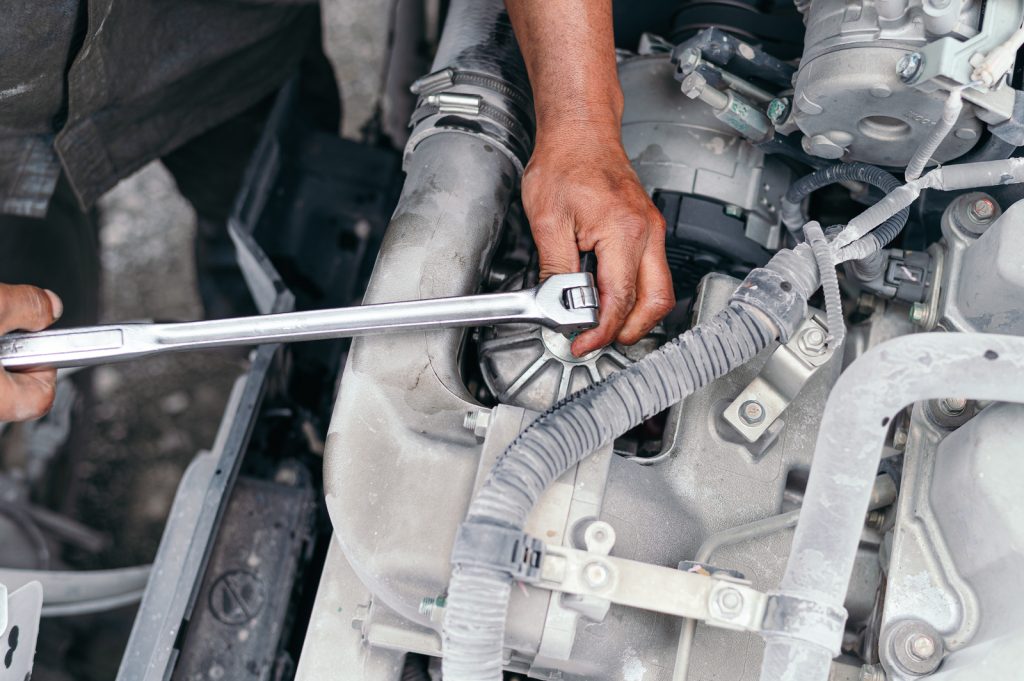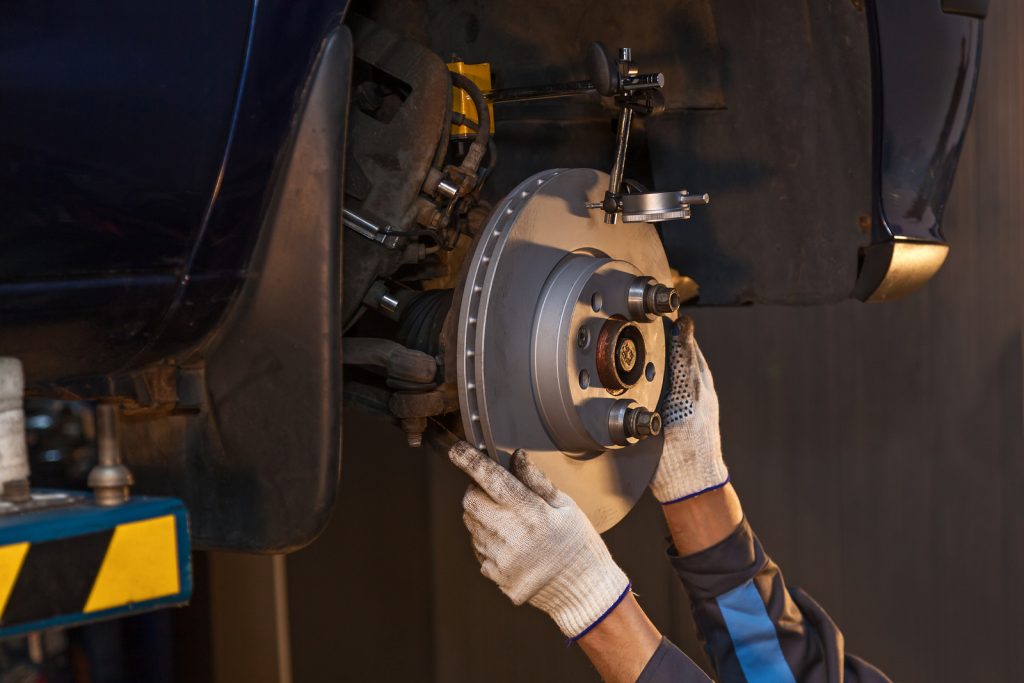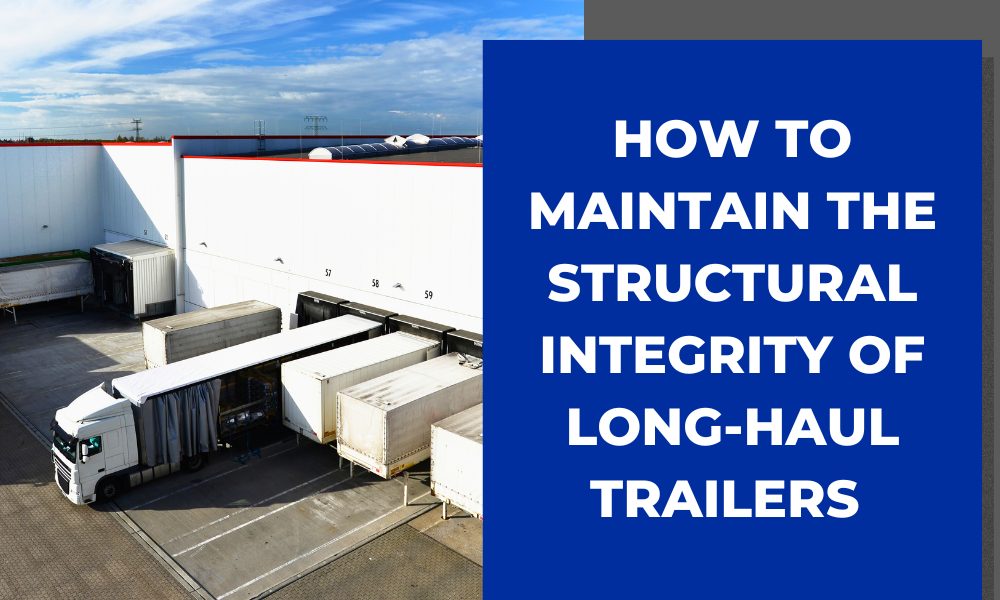Long-haul trailers are the backbone of the freight industry, designed to carry heavy loads over long distances. As a critical component of the transportation network, maintaining the structural integrity of these trailers is essential for safety, efficiency, and longevity. Neglecting trailer maintenance can lead to costly repairs, breakdowns, and, most importantly, safety risks for drivers and other road users.
At WA Haulage Repairs, we are committed to helping you keep your trailers in top condition. In this article, we’ll explore how to maintain the structural integrity of long-haul trailers by focusing on essential aspects such as axle and wheel alignment, fastener inspection, and overall trailer safety.
Why Maintaining Structural Integrity is Crucial for Long-Haul Trailers
The structural integrity of a long-haul trailer is vital for several reasons:
- Safety: A trailer with compromised structural integrity can cause accidents, leading to potential injuries or fatalities. Proper maintenance ensures that the trailer remains stable and safe to operate.
- Longevity: Regular maintenance helps extend the lifespan of the trailer, preventing premature wear and tear.
- Efficiency: A well-maintained trailer will operate more smoothly, requiring less fuel and reducing overall costs for the business.
- Compliance: Adhering to maintenance schedules ensures that trailers comply with safety and regulatory standards.
Now let’s look at some of the most important aspects of long-haul trailer maintenance that can help preserve its structural integrity.
1. Regular Axle and Wheel Alignment
One of the primary factors influencing the structural integrity of a long-haul trailer is the alignment of its axles and wheels. Misalignment can cause uneven wear on tyres, excessive stress on the suspension system, and reduced handling ability. Poor axle and wheel alignment can also lead to damage to other critical parts of the trailer, such as the frame and suspension components.
Why Axle and Wheel Alignment Matters:
- Tyre Wear: Misalignment causes tyres to wear unevenly, shortening their lifespan and leading to higher replacement costs.
- Fuel Efficiency: Misaligned wheels create drag and resistance, causing the vehicle to consume more fuel.
- Handling: Properly aligned axles ensure that the trailer handles smoothly and safely on the road, especially during long hauls.
To maintain axle and wheel alignment, trailer owners should schedule regular inspections and alignments. Professional mechanics, like the WA Haulage Repairs team, use specialised equipment to check the alignment and make necessary adjustments to prevent misalignment.
2. Trailer Fastener Inspection

Trailer fasteners, such as bolts, nuts, and rivets, are critical components that hold the trailer’s frame together. Over time, these fasteners can become loose, corroded, or damaged, which compromises the structural integrity of the trailer. Loose or damaged fasteners can lead to parts of the trailer coming apart, causing serious safety hazards.
Key Areas for Fastener Inspection:
- Frame Connections: The frame of the trailer is held together by numerous fasteners. Inspecting these fasteners regularly ensures that the frame remains intact and stable under heavy loads.
- Suspension Components: The suspension system of the trailer relies on fasteners to secure components such as leaf springs, shock absorbers, and air suspension systems. Any loose or damaged fasteners can affect the trailer’s ride quality and safety.
- Body and Trailer Floor: Fasteners securing the body panels and trailer floor should be inspected to prevent structural failure, especially during heavy loads.
Regular fastener inspections should be conducted as part of a routine maintenance schedule. Tightening or replacing damaged fasteners can prevent structural failures and improve the overall safety of the trailer.
3. Inspection of the Trailer Frame
The frame is the most critical structural component of a long-haul trailer. It carries the entire load and must withstand immense pressure during transportation. Over time, the trailer frame can suffer from wear and tear, particularly if exposed to rust, corrosion, or physical damage.
Signs of Structural Issues in the Trailer Frame:
- Cracks or Weld Failures: Cracks in the trailer frame, especially near welds, can lead to catastrophic failure. Inspecting these areas regularly can prevent major breakdowns.
- Corrosion: Corrosion from road salt, water, and environmental exposure can weaken the trailer frame. Rust-resistant coatings and periodic cleaning help prevent corrosion.
- Misalignment or Bending: Any signs of the frame bending or misalignment should be addressed immediately to avoid further damage.
Frame inspections should be part of a comprehensive maintenance program. Regular cleaning, painting, and applying rust-resistant coatings can help preserve the trailer frame’s structural integrity.
4. Regular Suspension and Brake System Checks

The suspension and brake systems of a long-haul trailer play a vital role in maintaining both the trailer’s safety and structural integrity. The suspension system absorbs shocks from the road, preventing excessive stress on the trailer’s frame and axles. The brake system, on the other hand, ensures that the trailer can safely slow down or stop when needed.
Key Maintenance Areas:
- Suspension Components: Inspect the suspension for wear or damage, especially on the leaf springs, shock absorbers, and airbags (in air suspension systems).
- Brake Pads and Drums: Worn brake pads can cause overheating, while damaged brake drums can affect braking efficiency. Ensure the brake system is functioning correctly to avoid excessive strain on the trailer’s structure.
- Airlines and Brake Components: Leaks in the air supply lines can lead to braking failures, which can cause further structural damage to the trailer.
By regularly checking suspension and brake components, owners can ensure their long-haul trailers remain structurally sound while improving safety on the road.
5. Proper Load Distribution
Improper load distribution can have a significant impact on a long-haul trailer’s structural integrity. Uneven weight distribution puts extra strain on certain areas of the trailer, causing parts to wear out more quickly and potentially leading to structural failure.
How to Ensure Proper Load Distribution:
- Follow Manufacturer’s Guidelines: Manufacturers provide load distribution recommendations to prevent overloading certain parts of the trailer.
- Use Load Cells or Weight Sensors: These tools can help monitor the weight distribution on the trailer to ensure its evenly spread across the axles.
- Balance the Load: Properly secure and balance the load inside the trailer to reduce the risk of damage to the frame and suspension system.
Maintaining proper load distribution helps to preserve the trailer’s structural integrity and ensures the safety of the vehicle and its cargo.
6. Regular Maintenance of Trailer Components
Routine maintenance of all trailer components is essential for preserving its overall structural integrity. This includes checking the electrical system, lights, tires, and coupling mechanisms. Ensuring that all components are in good working condition reduces the risk of malfunctions that could lead to accidents or structural damage.
Prioritise Trailer Safety with Regular Maintenance from WA Haulage Repairs
Maintaining the structural integrity of long-haul trailers is a combination of vigilance, regular inspections, and addressing small issues before they escalate into major problems. By focusing on crucial areas such as axle and wheel alignment, fastener inspection, suspension checks, and load distribution, fleet owners can prevent costly repairs, extend the lifespan of their trailers, and enhance safety on the road.
At WA Haulage Repairs, we specialise in comprehensive long-haul trailer maintenance, ensuring your fleet remains in top condition for years to come. Whether you need axle alignment, fastener inspection, or structural frame repairs, our expert team is here to help. Trust us to maintain the safety, efficiency, and reliability of your long-haul trailers. Contact us on (08) 9359 0422 to discuss your trailer needs. By investing in regular maintenance, you’re investing in the long-term success of your fleet and the safety of everyone on the road.

